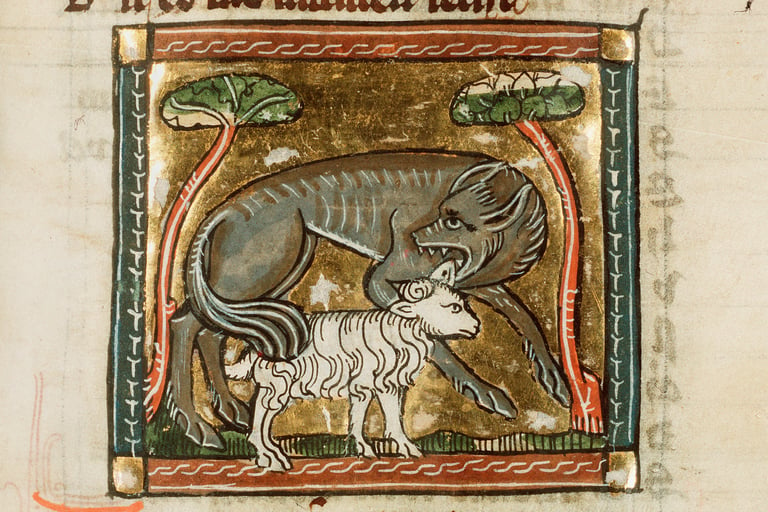On Wolf Catchers: an excerpt from the urban statutes of Pistoia
It's wolves hunting season in Pistoia's countryside, and a 1346 law from the commune of Pistoia has more to say.
Wolves were terrorising not only characters from the brothers Grimm tales, but also the Tuscan countryside in the fourteenth century. Apparently it was a serious enough threat that the legislators of Pistoia, a small city west of Florence, made some legal arrangements in 1346 to try and solve this problem.
On Wolf Catchers. Rubrica.
Item we establish and ordain that any person [who] catches any big wolf or any wolf pups and has presented that big wolf dead or alive or those wolf pups to the treasurer of the Commune of Pistoia, would have, and must have, for any such big wolf (which he presented dead or alive to the Commune of Pistoia) 40 soldi, and for any wolf pup (which he presented as said above) 10 soldi. And the treasurer of the Commune, as soon as the abovementioned was done, can and must pay from the treasure of that Commune with no need of any further provision or riformazione.*
* Provvisioni and riformazioni were types of legislation passed by legislative councils in medieval cities, in this case, the Consiglio generale of Pistoia.
Transcription:
De capientibus lopos. Rubrica.
Item statuimus et ordinamus quod quecumque persona ceperit aliquem lupum magnum vel lupicinos aliquos et ipsum lupum magnum mortuum seu vivum vel ipsos lupicinos representaverit camerario comunis Pistorii habeat et habere debeat de tali lupo magno quem vivum vel mortuum representaverit a comuni Pistorii soldos quadraginta denariorum et pro qualibet lupicino quem representaverit ut sopra dicitur soldos decem denariorum Et camerarius comunis sine alia provisione vel reformatione inde fienda predicta solvere possit et debeat de peccunia dicti comunis
Archivio di stato di Pistoia, Statuti e ordinamenti, no. 6, f. 115v.


